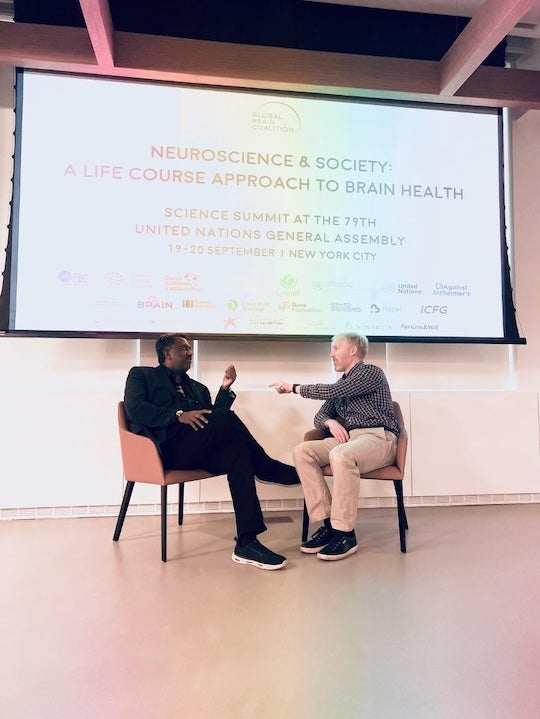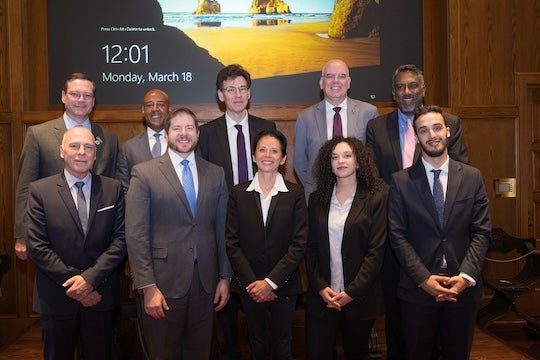


In a significant event during the 79th United Nations General Assembly Science Summit, neuroscience experts gathered for the inaugural 'Brain Days,' co-organized by Rice University and the Baker Institute. This event aimed to discuss the transformation of the global brain economy, emphasizing the need for a systems approach to brain capital, as highlighted by Paul Cherukuri, a key speaker at the summit. The discussions underscored the economic impact of brain health disorders, which currently cost approximately $2.2 trillion and are projected to grow at an annual rate of 5% [2e27c1fe].
The event featured notable speakers, including U.S. Representative Morgan Luttrell and John Ngai, Director of the NIH BRAIN Initiative, who contributed to the dialogue on advancing brain health and neuroscience policy. Harris Eyre, who leads Rice's Neuro-Policy Program, played a pivotal role in the discussions, focusing on data analysis and the application of policy to address brain health challenges [2e27c1fe].
In addition to the discussions, the Neuro-Policy Program co-authored the Yaoundé Declaration on the Brain Economy, which has been endorsed by Cameroon President Paul Biya. This declaration aims to promote international collaboration and investment in brain health and neuroscience research [2e27c1fe].
The event aligns with Rice University's ongoing commitment to addressing brain health challenges through interdisciplinary approaches, as demonstrated by the recent establishment of the Neuro-Policy Program, which received a $1 million donation to support its initiatives. This program aims to reduce brain and mental health disparities and foster innovation in brain health policies [b6b0f26f].
Furthermore, Rice University has been actively involved in various initiatives, including the launch of the Center for Nanoscale Imaging Sciences and the groundbreaking of Sarofim Hall, a new hub for performing arts on campus. The university's collaboration with NASA and the French National Center for Space Studies continues to strengthen its position in the global space community [e335da0b].
As Rice University continues to expand its research capabilities and partnerships, the discussions at 'Brain Days' highlight the critical intersection of neuroscience, health policy, and economic development, positioning Texas as a leader in brain health initiatives [2e27c1fe].